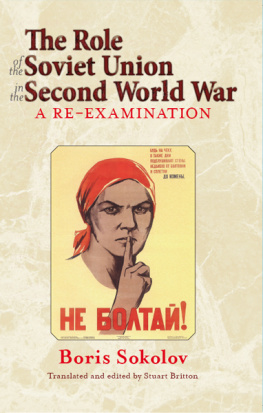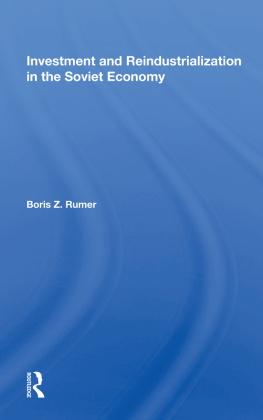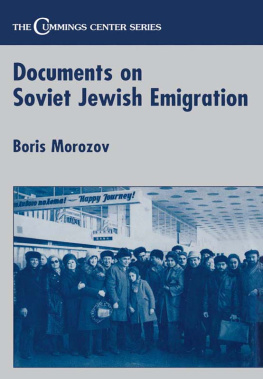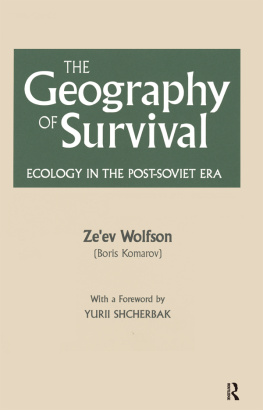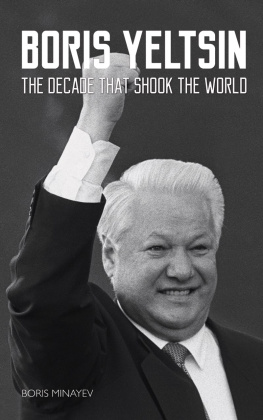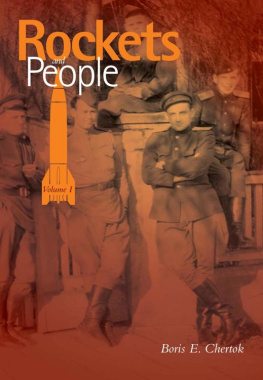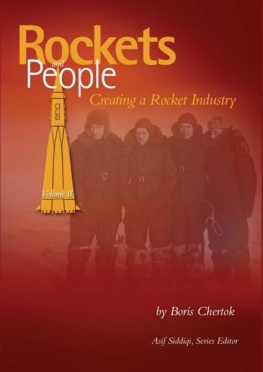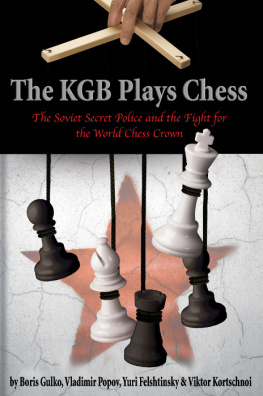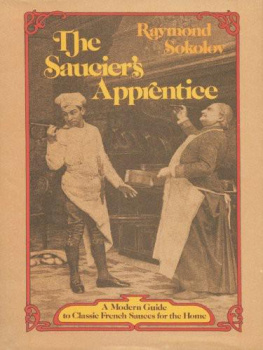Boris Sokolov - The Role of the Soviet Union in the Second World War: A Re-examination
Here you can read online Boris Sokolov - The Role of the Soviet Union in the Second World War: A Re-examination full text of the book (entire story) in english for free. Download pdf and epub, get meaning, cover and reviews about this ebook. year: 2013, publisher: Helion & Company, genre: Politics. Description of the work, (preface) as well as reviews are available. Best literature library LitArk.com created for fans of good reading and offers a wide selection of genres:
Romance novel
Science fiction
Adventure
Detective
Science
History
Home and family
Prose
Art
Politics
Computer
Non-fiction
Religion
Business
Children
Humor
Choose a favorite category and find really read worthwhile books. Enjoy immersion in the world of imagination, feel the emotions of the characters or learn something new for yourself, make an fascinating discovery.
- Book:The Role of the Soviet Union in the Second World War: A Re-examination
- Author:
- Publisher:Helion & Company
- Genre:
- Year:2013
- Rating:5 / 5
- Favourites:Add to favourites
- Your mark:
- 100
- 1
- 2
- 3
- 4
- 5
The Role of the Soviet Union in the Second World War: A Re-examination: summary, description and annotation
We offer to read an annotation, description, summary or preface (depends on what the author of the book "The Role of the Soviet Union in the Second World War: A Re-examination" wrote himself). If you haven't found the necessary information about the book — write in the comments, we will try to find it.
The Role of the Soviet Union in the Second World War: A Re-examination — read online for free the complete book (whole text) full work
Below is the text of the book, divided by pages. System saving the place of the last page read, allows you to conveniently read the book "The Role of the Soviet Union in the Second World War: A Re-examination" online for free, without having to search again every time where you left off. Put a bookmark, and you can go to the page where you finished reading at any time.
Font size:
Interval:
Bookmark:
Dr. Boris Sokolov is a prolific author and a member of the Russian branch of PEN International, which celebrates literature and promotes freedom of expression. In 2008, Dr. Sokolov was forced to resign as Professor of Social Anthropology from his post at the Russian State Social University in Moscow at the demand of President Medvedevs administration after publishing an article about the 2008 Russian-Georgian War. The author of 69 books (as of 2012), his work has focused on the history of the Second World War and has also written biographies of such prominent military and political leaders as Bulgakov, Stalin, Molotov, Beria, Tukhachevsky, Rokossovsky and Zhukov. In addition, he has written numerous articles on history, philology, political science and economics. A prominent specialist in the problems of military losses, military economy and strategy, he has given lectures in Russia, Estonia, Latvia and Denmark, and his books and articles have been translated into numerous languages. He currently resides in Moscow and is working on a biography of Marshal Rodion Malinovsky.
Stuart Britton is a freelance translator and editor residing in Cedar Rapids, Iowa. He has been responsible for making a growing number of Russian titles available to readers of the English language, consisting primarily of memoirs by Red Army veterans and recent historical research concerning the Eastern Front of the Second World War and Soviet air operations in the Korean War. Notable recent titles include Valeriy Zamulins awardwinning Demolishing the Myth: The Tank Battle at Prokhorovka, Kursk, July 1943: An Operational Narrative (Helion, 2011), Boris Gorbachevskys Through the Maelstrom: A Red Army Soldiers War on the Eastern Front 1942-45 (University Press of Kansas, 2008) and Yuri Sutiagins and Igor Seidovs MiG Menace Over Korea: The Story of Soviet Fighter Ace Nikolai Sutiagin (Pen & Sword Aviation, 2009). Future books will include Svetlana Gerasimovas analysis of the prolonged and savage fighting against Army Group Center in 1942-43 to liberate the city of Rzhev, and more of Igor Seidovs studies of the Soviet side of the air war in Korea, 1951-1953.
Helion & Company Limited
26 Willow Road
Solihull
West Midlands
B91 1UE
England
Tel. 0121 705 3393
Fax 0121 711 4075
Email:
Website: www.helion.co.uk
Published by Helion & Company 2013
Designed and typeset by Farr out Publications, Wokingham, Berkshire
Cover designed by Farr out Publications, Wokingham, Berkshire
Printed by Lightning Source Ltd, Milton Keynes, Buckinghamshire
Boris Sokolov 2013
ISBN 978-1-908916-55-6
EPUB ISBN: 9781909384712
British Library Cataloguing-in-Publication Data.
A catalogue record for this book is available from the British Library.
All rights reserved. No part of this publication may be reproduced, stored in a
retrieval system,or transmitted, in any form, or by any means, electronic, mechanical,
photocopying, recording or otherwise, without the express written consent of Helion &
Company Limited.
For details of other military history titles published by Helion & Company Limited
contact the above address, or visit our website: http://www.helion.co.uk.
We always welcome receiving book proposals from prospective authors.
Contents
Introduction
T his book is a compilation of several articles, published at different times, which are devoted mainly to the position and role of the Soviet Union in World War II. The main subject of exploration is the effectiveness of both the Red Army and the Soviet military economy. The book examines several different aspects of this subject.
One important indicator of military effectiveness is the level of losses sustained by the armed forces. Gross Domestic Product (GDP) is not a good indicator of the effectiveness of a military economy under war conditions. Rather, good measures of the effectiveness of a wartime economy are connected not only with level of production of main types of weapons and equipment, such as tanks and aircraft, but also with the output of communications equipment to facilitate command and control and with building vehicles to convey troops and supplies. The chief defect of the Soviet military economy was the large disproportion between the production of tanks and combat aircraft on the one hand, and the output of both the means of command and control and transportation means on the other. This disproportion was to some extent alleviated by Lend-Lease. Yet Soviet historiography traditionally denied the decisive role of Lend-Lease by stressing the fact that the Lend-Lease supplies received were insignificant compared to the Soviet output of tanks and aircraft. However, the tremendous growth in the Soviet production of armaments and equipment was to a large extent due to the Lend-Lease supplies of aluminum and alloys. The Soviet Union also decisively depended on American and British supplies of radio sets, anti-aircraft artillery, trucks, wagons, locomotives, some industrial equipment, fuel, explosives and so on. The Soviet Union really could not have waged a protracted war with Germany without the Lend-Lease supplies. The Soviet economy was not autonomous, despite the claims of the Soviet leaders and did not surpass either the American or German economies.
Also the real losses of the Red Army were much larger than has been officially recognized. As is argued in this book, the official figure for the irrevocable losses of the Red Army during the Great Patriotic War of 8,668,400 understates the actual losses by around a factor of three. For example, the official publication of the Russian Defense Ministry, which presents the cited figure of 8,668,400, also gives the irrevocable losses of the Soviet troops during the Berlin operation in April-May 1945. These losses, including the losses of the two Polish armies that participated in the operation, are given as 81,116 men, of which the Polish armies lost 2,825. So the Soviet irrevocable losses during the East Pomeranian operation may be estimated as 177,000 killed and missing.
As another example, the same Russian official source states that during the defense of These cases, as well as the tremendous underestimation of the irrevocable losses of the Central Front during Kursk, which will be discussed later, are decisive proof that the official irrevocable losses of the Red Army are drastically understated by at least a factor of three. The actual irrevocable losses of the Red Army relative to the irrevocable losses of the Wehrmacht on the Eastern Front are likely a ratio of 10 to 1. If we include the irrevocable losses of Germanys allies in the East and the irrevocable losses of the Soviet Unions allies, the ratio of irrevocable losses on the Soviet-German front falls only to around 9.3:1. If we take the losses of only the German units and those Red Army units that directly faced them while excluding those Soviet prisoners that died in German captivity, the ratio is 8:1 in favor of the German side.
It is interesting to note that the ratio of German and Russian irrevocable losses during the First World War, in the second half of 1916, was also around 7:1.
The disproportionate and tragic losses of the Red Army were caused by two primary factors. The first factor was the common cultural backwardness of Russia as compared with Germany. This factor operated during both World Wars. This backwardness resulted in the very low value assigned to human life both in the Russian Empire and in the Soviet Union. The second factor was the much more destructive character of Soviet totalitarianism as compared with Hitlers Nazi regime in Germany. Lenin and Stalin crushed the market economy, liquidated private property and terrorized the entire people with brutal wide scale repressions. Under such conditions the Soviet generals and officers were afraid to take independent action. Due to both the elimination of all political opposition and the total control over the peoples lives, neither the soldiers nor the civilians could protest the very high level of human losses. They could not refuse to make hopeless attacks while ordered.
Next pageFont size:
Interval:
Bookmark:
Similar books «The Role of the Soviet Union in the Second World War: A Re-examination»
Look at similar books to The Role of the Soviet Union in the Second World War: A Re-examination. We have selected literature similar in name and meaning in the hope of providing readers with more options to find new, interesting, not yet read works.
Discussion, reviews of the book The Role of the Soviet Union in the Second World War: A Re-examination and just readers' own opinions. Leave your comments, write what you think about the work, its meaning or the main characters. Specify what exactly you liked and what you didn't like, and why you think so.

